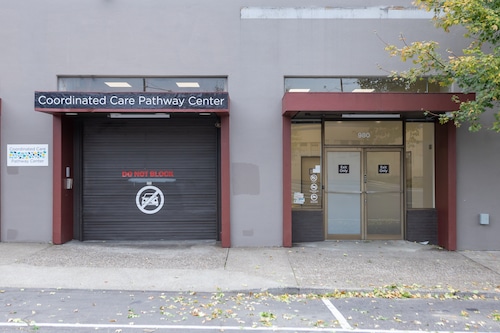Multnomah County will spend an extra $1.8 million to build and renovate its deflection center, which will provide drug users with an alternative to being arrested.
The new financing was approved by the Board of Commissioners.Thursday, with the only vote against it coming from Commissioner Sharon Meieran.
The county’s investment in facility upgrades is almost doubled thanks to the cash. In July, the board first approved $2 million for renovations to the facility in Southeast Portland.
Because the estimate was created in the midst of a hurried deadline to launch the facility, officials said Thursday they were not sure the initial amount would cover construction. The building required more work than anticipated, they added.
Dan Zalkow, director of Facilities and Property Management, stated that we did not yet have the project designed and knew very little about the facility. Almost everything we touched in the facility was worse than we had anticipated in terms of expense right from the beginning.
According to Zalkow, the project was delayed by unanticipated asbestos, the necessity for fire safety system upgrades, and additional lighting. In order to try to open on September 1st, a target the county failed, accelerated shipping of materials and overtime for construction workers also contributed to the higher expenses, officials said. Next year, the county anticipates adding about 13 sobering beds to the facility.
Ultimately, the $3.8 million cost of the upgrades will not be paid for directly from county funds. The county started its deflection program with $25 million from the state. Along with funding the development of a permanent deflection center in 2026, the funds will also be utilized for continuing expenses to operate the current Coordinated Care Pathway Center, which acts as Portland’s deflection hub.
In August, officials projected that the deflection center’s first 22 months of operation would cost $11.8 million. Among other things, that amount included $1.6 million for security, $2 million to pay county employees, $1.6 million for transportation to and from the facility, and roughly $4 million for Tuerk House, a nonprofit organization based in Baltimore that operates the center.
According to Meieran, who has closely examined the county’s program, the unexpected increase in construction costs was startling.
“You seemed to have a plan,” Meieran remarked. You’re returning now and claiming that the sum is exactly double what it was when you visited us so many months ago. As a board, we cannot justify giving this project an additional $1.8 million at this time.
According to chair Jessica Vega Pederson, she was informed that the deflection center’s completion would cost more than anticipated and that building projects frequently exceed their projected budgets.
According to Vega Pederson, everyone wanted to attempt to reduce extra expenses, and in some cases, it was successful, while in other cases, it wasn’t. We scheduled this and included it in the board meeting after realizing the costs.
Meieran questioned the center’s efficacy, arguing that since its opening on October 14, it has only served a small number of people. In its first month of operation, police referred 74 people to the facility, or little more than two people every day on average. According to officials, 127 persons have opted for deflection rather than arrest. Cases from September are included, as the county used mobile deflection units in the interim until the center opened.
According to Portland Police Commander Brian Hughes, the bureau has so far postponed around one-third of drug-related arrests to deflection.
Hughes stated on Thursday, “I believe this has been a worthwhile endeavor, and I look forward to continuing it.”
To be eligible for deflection, a person must agree to forego arrest and pass a police screening. The individual is then taken by police to the county’s facility, where they have a meeting with a peer support specialist. They are then sent for shelter, behavioral health, or drug addiction therapy, among other services, after undergoing a medical assessment to ascertain what assistance they require.
If participants follow through on recommendations specified in their county-provided care plan, they successfully complete deflection. The number of persons who have actually accessed services after a screening with the county has not been disclosed by officials. According to officials, the county will disclose that information in February.
Deflection is not available to those who have outstanding warrants or other charges against them, are too drunk to provide their assent, or have failed deflection in the last 30 days. If a person doesn’t follow up with services within 30 days of being found in possession of narcotics, they fail deflection.
By 2026, the county plans to create a permanent, larger facility with more sobering and withdrawal beds, replacing the present temporary deflection center.
Austin De Dios reports on programs, politics, and other topics in Multnomah County. You can reach him at @AustinDeDios, [email protected], or 503-319-9744.
Your support is essential to our journalism. Sign up for OregonLive.com now.
Multnomah County
-
Shannon Singleton sworn in as Multnomah County commissioner
-
Multnomah County switches to uniform hours at all libraries
-
Multnomah County s universal basic income experiment worked, until the money ran out
-
Multnomah County heading towards $21 million shortfall next year, officials say
-
Longtime Portland City Hall insider tapped as Multnomah County commissioner-elect s chief of staff
Note: Every piece of content is rigorously reviewed by our team of experienced writers and editors to ensure its accuracy. Our writers use credible sources and adhere to strict fact-checking protocols to verify all claims and data before publication. If an error is identified, we promptly correct it and strive for transparency in all updates, feel free to reach out to us via email. We appreciate your trust and support!



